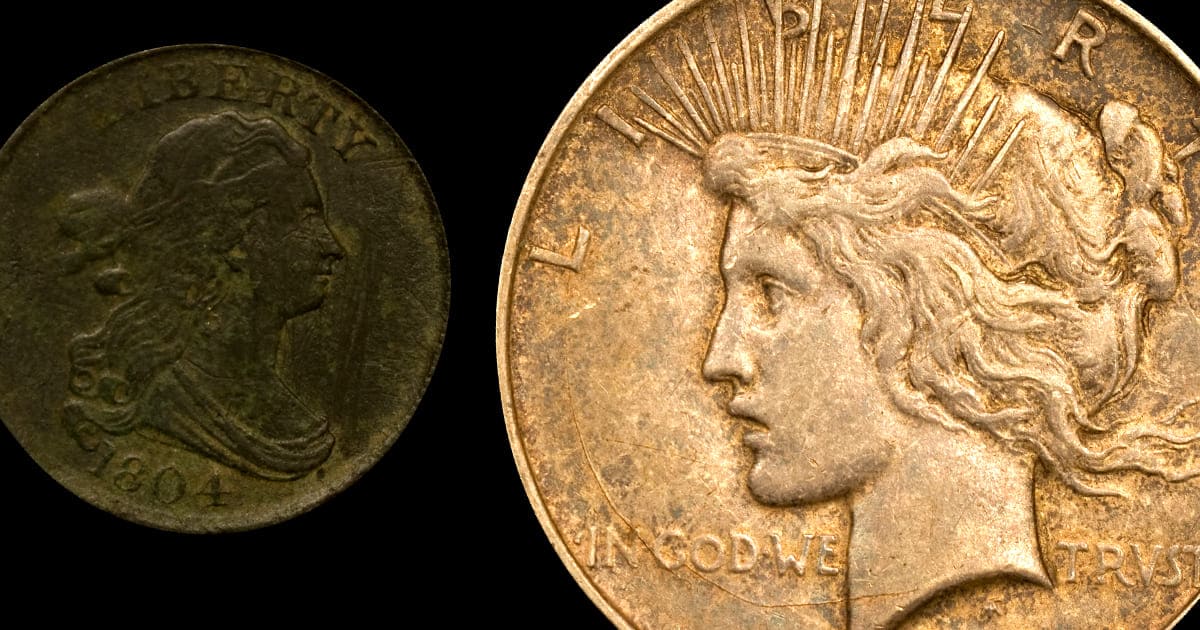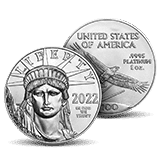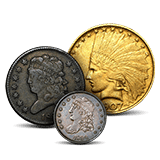
Silver and Gold Issues, Including Oxidation and Pitting
No matter what Gold or Silver bullion you decide to buy, you run the risk of the metal being corroded and affected by the outside environment. Decay, however, is something that many people think about regarding Precious Metals. The ultimate question is does Silver and Gold decay? In a manner of speaking, no. Gold and Silver also do not decompose in the sense that it rots or withers away.
Even though Gold and Silver do not decay, they are susceptible to other issues, both environmental and non-environmental:
- Oxidation
What may appear to be the cover of the coin peeling or spots on the coin is actually oxidation on the coin. - Milk spots
Planchets, the round disks that are struck into coins, are usually washed after they are made. This helps to remove any contaminants and give the planchet a brighter appearance. It is believed that if the planchets are not completely rinsed, the remnants of the solution used to wash them will cause white spots to develop over time.
- Green spots
Often confused with mold, green spots are commonly found on U.S. cents, but they have been known to show up on Gold bullion and Silver bullion, too. Verdigris, as some call it, can be cleaned quickly and easily. - Pitting
Pitting is a result of corrosion. It happens when you see small holes on the surface of your coin. - Finger spots
Fingerprints are dangerous on coins because we have bacteria and oils on our fingers that can accelerate the corrosion process.
Gold and Silver are conductors of heat and energy, which is why these metals are used in various industries. One feature that makes these two Precious Metals widely collected is they both have a high tolerance to air exposure. They, along with Platinum and Palladium, are slow to tarnish, fade or break down in the environment. By their scientific and chemical nature, these elements are not immune to corrosion, but they are immune to decay.
TAKING CARE OF YOUR GOLD OR SILVER BULLION
When it comes to handling your Precious Metals, you should proceed with caution and care. When you properly handle the bullion, you keep its condition and grow the value. Here are some ways to take care of your metals:
- Use cotton gloves to help protect the coin from fingerprints.
- Never handle metals together, especially if you have a tarnished metal and a pristine metal.
- Store them in an air-tight container specifically designed for coins or bars.
- Dry your coin when possible. Whether exposed to moisture or a humid environment, be sure to dry the bullion. Moisture can cause rust and water spots.
Start exploring our most popular Precious Metal products to expand your collection here.





